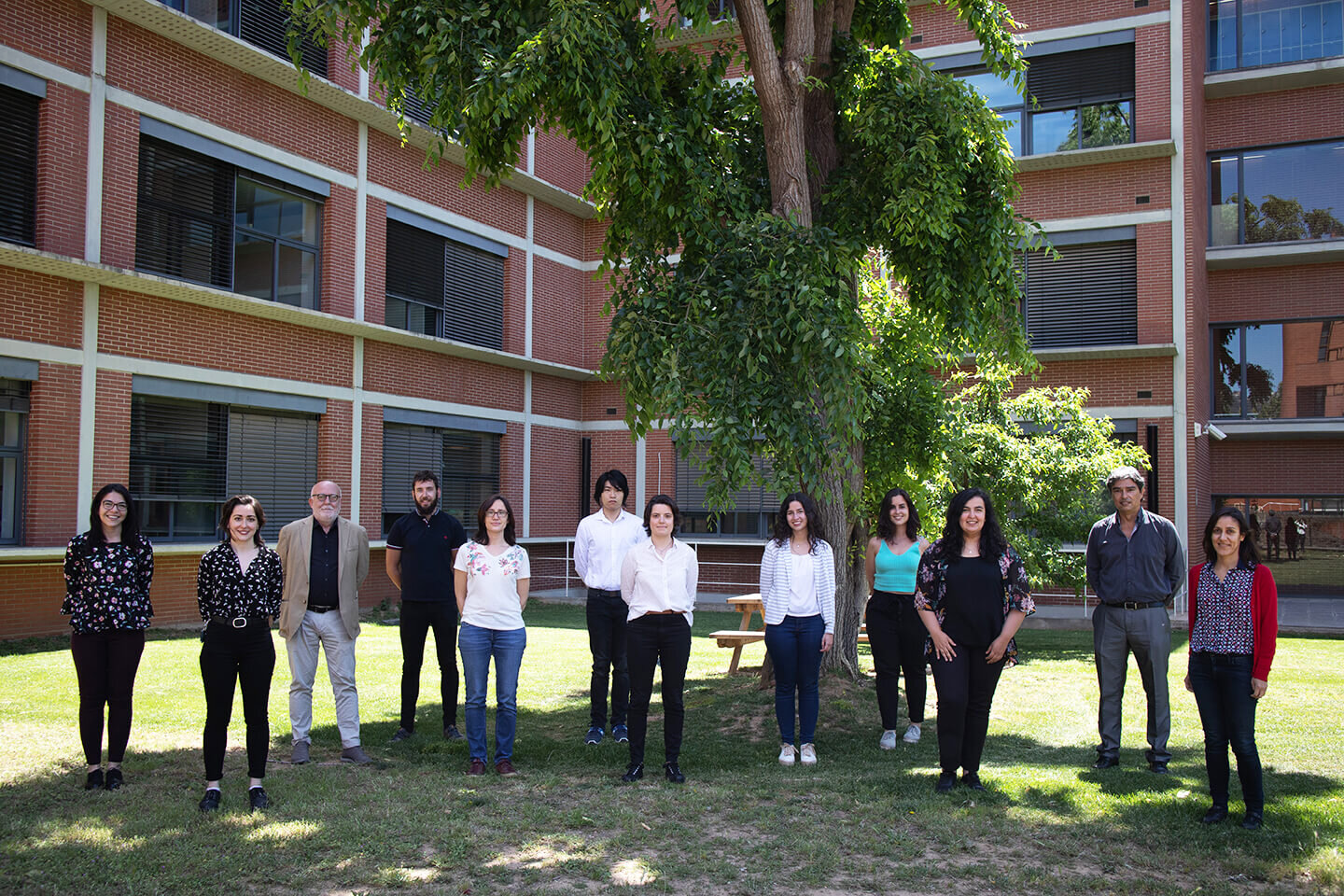Molecular Pharmacology and Experimental Therapeutics (MPET)
Research Program
Leaders
Where we are
 Institut de Biomedicina de la UB (IBUB)
Institut de Biomedicina de la UB (IBUB)
Related websites
Our research group forms part of the Biomedicine and Molecular Pharmacology Section of the Department of Biochemistry and Molecular Biomedicine at the University of Barcelona.
We are recognised as a consolidated group by the Government of Catalonia (SGR 416) and have also been part of the CIBEREHD (Centre for Biomedical Network Research on Liver and Gastrointestinal Diseases) oncology programme since 2006.
Research lines
- Molecular pharmacology of drug transporters and impact on the mechanisms of action of chemotherapy in cancer.
- The role of cell transportome in oncogenesis.
- Purinergic regulation in inflammation.
- Nucleotide metabolism in the pathophysiology of cancer and rare diseases.
Scientific objectives
- To identify and functionally validate new protein networks linked to nucleotide metabolism, likely to contribute to oncogenesis and that could be established as new pharmacological targets.
- To validate new molecules likely to modulate purinergic responses in inflammation.
- To analyse epigenetic control mechanisms of cell transportome in the context of tumour proliferation.
- To generate new experimental models for preclinical validation of anti-tumour drugs.
Area/Field of expertise
The MPET group is an international benchmark in the field of the bioavailability and mechanisms of action of anti-tumour, anti-viral and anti-inflammatory drugs. Our research in pharmacology has included the pharmacogenetic testing of genetic variants of drug transporters with high-allelle frequency in humans. We have developed various experimental models to anticipate drug-drug interactions likely to condition the therapeutic response. This area of study has focused mostly, though not exclusively, on nucleoside-derived drugs.
Complementary to the pharmacological study of transporter proteins, MPET has also contributed new knowledge on the molecular and cell biology of membrane proteins involved in nucleotide metabolism. We have contributed new evidence of the gene and protein networks that may be altered in oncogenic processes. We use state-of-the-art technology to analyse transport membrane protein interactome with the aim of identifying possible new therapeutic targets capable of modulating nucleotide metabolism and, consequently, cell proliferation.
Our area of specialisation is in fact extremely broad. We can conduct, for example, mechanistic studies of the action of a specific drug or metabolic studies on the metabolism of nucleotides and nucleic acids. These can be applied to a wide range of pathologies, from rare diseases in childhood to inflammatory diseases or cancer.

Group members
-

Jefe de Grupo Senior
-

Investigador
-

Investigador post-doc
-

Investigador post-doc
-

Investigador post-doc
-

Investigador pre-doc
Last Publications
- Camarero-Hoyos C, Bouzón-Arnáiz I, Avalos-Padilla Y, Fallica AN, Román-Álamo L, Ramírez M, Portabella E, Cuspinera O, Currea-Ayala D, Orozco-Quer M, Ribera M, Siden-Kiamos I, Spanos L, Iglesias V, Crespo B, Viera S, Andreu D, Sulleiro E, Zarzuela F, Urtasun N, Perez-Torras S, Pastor-Anglada M, Arce EM, Muñoz-Torrero D and Fernàndez-Busquets X Leveraging the Aggregated Protein Dye YAT2150 for Malaria Chemotherapy Pharmaceutics . 16(10): .
- Mata A, Vila-Planas A, Solsona-Pujol A, Dueña J, Torrents M, Izquierdo-García E, Pastor-Anglada M, Perez-Torras S and Terrazas M RNase H-sensitive multifunctional ASO-based constructs as promising tools for the treatment of multifactorial complex pathologies. BIOORGANIC CHEMISTRY . 150: 107595-107595.
- Galán V, Beléndez C, Echecopar C, Estival P, Sissini L, Olivas R, Bueno D, Molina B, Fuentes C, Regueiro A, Benítez I, Plaza M, Margarit A, Rifón J, Pascual A, Palomo P, Urtasun N, Fuster JL, de Heredia CD, Navarro JMF, Vicent MG, Ruz B and Martínez AP Treosulfan-Based Conditioning Regimen In Pediatric Hematopoietic Stem Cell Transplantation: A Retrospective Analysis on Behalf of the Spanish Group for Hematopoietic Transplantation and Cellular Therapy (GETH-TC). Transplantation and Cellular Therapy . 29(11): .
Theses
-
Estudio de la interacción de hCNT3 y QDPR como nexo funcional entre la recuperación de nucleósidos y sus vías biosintéticas
- Author
- Prieto Carruyo, Andrea Valentina
- Institution
- UNIVERSIDAD DE BARCELONA
-
Pharmaceutical development of nanosystems for the delivery of drugs in epidermis and hair follicles, skin biodistribution studies
- Author
- Pena Rodríguez, Eloy
- Institution
- UNIVERSIDAD DE BARCELONA
-
Implicació del miRNorma tumoral en l´expressió del transportador concentratiu de nucleòsids hCNT1
- Author
- Boces Pascual, Clara
- Institution
- UNIVERSIDAD DE BARCELONA
News
-
A drug capable of simultaneously targeting three different therapeutic targets is designed.
The study, published in the journal Bioorganic Chemistry, presents a proof of concept for this innovative triple-effect compound, which has been successfully applied to breast cancer cells. According to experts, this therapy has "high potential for the treatment of complex diseases such as cancer or diabetes.
More activities
-
Cátedra UB de Enfermedades Raras: Jornada sobre la Investigación
Aula de Graus. Facultat de Biologia. Universitat de Barcelona

 Institut de Biomedicina de la UB (IBUB)
Institut de Biomedicina de la UB (IBUB)